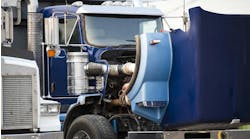A few short years ago, the buzz around a Class 8 electric vehicle manufacturer was impossible to ignore. It was a masterclass in marketing and promotion that culminated in the founder's conviction in December 2023 for deceiving investors. Everyone was so happy to hear that electric trucks were on the market that they wanted to believe everything he said. A jury determined he was less than truthful in his claims, which defrauded investors of more than $660 million.
The lack of infrastructure is a significant obstacle for EVs. It’s the combination of electricity production and charging accessibility that is a long way from being able to support a national network of electric trucks. Daimler Truck, Navistar, and Volvo recently formed Powering America’s Commercial Transportation to generate government support in Washington to develop a national heavy-duty charging infrastructure.
See also: Coalition puts $1 trillion price tag on electrifying U.S. trucking industry
According to Department of Energy data, only nine fast-charging stations in the U.S. can accommodate heavy trucks. This infrastructure seriously lags behind passenger vehicle charging infrastructure, which must be significantly expanded if electric trucks are to replace the diesel engine.
Electric trucks are here in tiny numbers, and a few fleets have operational success. Like their passenger vehicle counterparts, the rate of tire wear is accelerated, so it must be factored in when determining the total cost of operation. With fewer than 1,000 over-the-road heavy-duty EVs, fleets are still in the data-collecting stage, but tread mileage will be an unavoidable trade-off.
Tire manufacturers are in various stages of supplying tires for electric trucks and buses. There will undoubtedly be some construction, rubber compound, and/or tread design changes to account for the additional torque and weight. The small number of electric trucks is creating data to help shape the first generation of EV truck tires. Still, the applications are limited, so the data is limited.
Inflation pressure maintenance is even more critical for electric trucks because the weight of the batteries creates additional stress on the tires when the vehicle is empty. It also affects rolling resistance, which affects range. In an application where the treadwear rate is already accelerated, underinflation will only increase the number and severity of irregular wear conditions. There is some room for error when it comes to inflation pressure maintenance on diesel trucks. Electric trucks have a finer line between underinflation and overloading, so checking and maintaining inflation pressure is crucial.
See also: Clark: Impact of tires on fuel economy and operating costs
In addition, service considerations must be addressed. Lifting points on diesel Class 8 tractors are usually relatively easy to identify and utilize. The same cannot be said for electric trucks. Using the incorrect lift point on a diesel truck can damage a specific component. Using an electric truck's incorrect lift or support point can result in a six-figure repair because the entire drive motor may need to be replaced. Fleets with electric Class 8 tractors must ask the manufacturer for the proper lift and support points to communicate information to the service provider.
Given the reduced tread mileage, fleets with electric trucks need a comprehensive retread program to control tire costs. Replacement intervals will be a lot shorter, so the lack of retreading will result in higher expenses. Like other high-scrub applications, casings must be capable of multiple retreads because of the limited mileage. It’s also easier for retread manufacturers to offer special rubber compounds and tread designs for application-specific electric trucks. The goal of getting every mile out of every casing doesn’t change with an EV. It just becomes more difficult. Retreading will make it easier.
We are still a long way from mass operation of EVs in the passenger space, and with only nine fast-charging stations at the national level for heavy trucks, future projections for Class 8 electric trucks are not promising. There will be applications where the electric model works, but the benefits will be primarily measured in areas like reduced emissions and noise.
With fewer than 1,000 electric trucks on the road, there are too many unknown factors, so large-scale adoption will not happen soon. The lessons being learned for the fleets currently testing or operating electric trucks will determine the future of the heavy-duty EV market.



